This article was co-authored by Desiree Panlilio. Desiree Panlilio is a Teen Life Coach and the Owner of Encouraging Teens, LLC. With over three years of experience, she specializes in helping teens and young adults define roles, set goals, develop healthy academic and personal habits, grow in leadership potential, and create their life paths. Desiree holds a BSN in Nursing from The University of Victoria and an MA in Human Services Counseling with a concentration in Life Coaching from Liberty University.
There are 10 references cited in this article, which can be found at the bottom of the page.
This article has been viewed 20,637 times.
Technology is everywhere and has made our lives simpler. We can do just about anything just by picking up our smartphone. However, this convenience may lead to more dependence on technology than your own brain. To stop relying on technology and keep your mind from getting dull, do basic things for yourself, like math and spelling, explore the world around you without GPS, interact with people in person, and try new things.
Steps
Using Reading and Communication Skills
-
1Read more physical texts. Technology has led to e-readers, online newspapers, and blogs that you can read on your phone, tablet, or laptop. However, reading online or with immediate access to the internet can lead to distraction and less recall. Consider reading a physical book, newspaper, or magazine instead of a digital version.[1]
- Sometimes, quickly skimming a newspaper article and clicking on the next link can lead to a lot of short bursts of information that you don’t focus on long enough to commit to memory or form thoughts.
- Reading short bursts of information found on the internet can also lead to a shorter attention span. It may also affect your ability to read things in-depth.[2]
- Find a book series you enjoy reading.[3]
-
2Read books aloud. Audiobooks are a great result of technology, but you can easily zone out or stop listening to an audiobook. Instead of listening to a book, try reading it out loud. You still engage your auditory senses, but engage an additional part of your brain by reading, listening, and speaking a book.[4]
- Make it a family or social activity. Read a book to a child, or make your way through your novels with a friend or partner by reading them to each other.
Advertisement -
3Work on your vocabulary skills. Instead of learning definitions, people just look them up on their phones. They also use phones to help spell. Instead of looking up a word and forgetting it immediately, look it up and commit it to memory.[5]
- Learn how to spell the word, all various definitions, and any synonyms. You may keep a list of words you are learning, or make flashcards to help you review them and commit them to memory.
-
4Talk more and text less. Many people have exchanged talking for texting. They don't call people, and they don't visit. Instead, they text and talk on social media. This can lead to a decrease in social and verbal communication skills. Start making a point to talk to people using your voice and words instead of technology.
- For example, you can call someone instead of texting them, especially if you want to have a conversation.
- Consider going to dinner or getting together with people in person. Make sure you put away your cell phone and talk instead of staying on your phone.
Employing Math and Problem-Solving Skills
-
1Do math in your head. People are losing the basic skills of addition, subtraction, multiplication, and division. Instead of using what they learned in school, they’re just pulling out their cell phones or calculator. If your math skills have gotten dull, start doing math in your head.[6]
- If you need to use pen and paper to work out the problems, that’s okay.
-
2Calculate a tip in your head. Cell phones have made leaving a tip so much easier because you can use a tip calculator app instead of doing math. Instead of using your phone, calculate the tip yourself on a napkin.
- If calculating 15 or 18% is too difficult at first, start with 20%. That is an easier percentage to calculate by hand.
-
3Wear a watch. Many people don't wear watches anymore because they use their cell phones to tell time. Try wearing an analog watch where you have to read the time based on the hands instead of just easily reading the numbers.
-
4Download an app. In some cases, using your phone or tablet may be unavoidable, but you can still keep your mind sharp. Many apps can help you improve your math skills by giving you problems to solve. There are even apps, such as Maths Alarm Clock or FreakyAlarm, that will force you to answer a math problem before turning off your morning alarm. These can help you keep yourself alert and focused, even as you use technology.
Exploring Your World Without Technology
-
1Go somewhere without GPS. People rely on GPS to get them everywhere. This eliminates the need to make your own mental map, learn shortcuts, or rely on your instincts or sense of space. People also will believe a GPS instead of road signs or direction markers. Try getting around town or a new city without GPS. Even if you get lost, your brain starts making a map of the area.[7]
- Try taking a new route somewhere. See if you can find a shortcut, or go down a road you haven’t driven down before. Changing the path you drive somewhere engages your brain in a way that mindlessly following GPS doesn’t.
- You can also do this when walking, hiking, cycling, running, or taking public transit.
-
2Use a map. Reading a map is a skill. However, many people can’t read a map because they only rely on GPS. Next time you are planning a road trip somewhere or are walking around a city, pull out a map instead of your phone.[8]
- By doing this, you not only work on your map reading skills, but engage your sense of direction and work on memorization.
-
3Interact with different people. One thing people believe technology is doing is separating people from each other. They spend more time on their phones or talking to people via text or social media than interacting with people in person. Meeting new people, learning new things, and listening to new ideas and viewpoints helps stretch and stimulate your mind.[9]
- Try to find people to interact with in your life. This may be through work, school, friends, or family. Visit your grandparents, for example.[10]
- Consider going places where you will interact with those different than you. This may include an organization meeting, a volunteer opportunity, book club, public talk, or even a social meetup.
-
4Go tech-free once a week. Choose one day a week to completely disengage yourself from all technology and electronic programs. This includes smartphones, computers, video games, and TV. Leave your phone at home, and try to explore the world without any form of electronic communication.
- Be sure to let family, friends, and coworkers know which day of the week you are planning on doing this so that they do not become worried if they can't get in touch with you.
Doing Things To Keep Your Mind Active
-
1Try something new. Sometimes, people who rely too much on technology get stuck in a rut where they just stay on their tablets or phones, spend too much time on the internet, or watch television. Put away the technology and try new things.[11] Engaging in new experiences helps stimulate your brain.[12]
- You can start with things you are comfortable with. Try a new restaurant or type of ethnic cuisine. Travel somewhere new, even if it is close by.
- You can also try something completely different than what you usually do. If you aren’t active, sign up for a dance class or tennis lesson. If you spend a lot of time being active, try a painting or cooking class.
-
2Get a hobby. Another way you can help keep your mind stimulated and get away from technology is to take up a hobby.[13] Hobbies where you use your hands are especially good for your brain. These kinds of hobbies help focus the mind, boost your mood, and stimulate your brain cells.[14]
- Good hobbies for your brain include creating music, drawing and painting, reading, any kind of arts or crafts, and home repair or building projects. You can also try dancing, martial arts, geocaching, writing, learning new languages, playing challenging board games, hiking and camping, or gardening.
-
3Exercise. Many studies have found that exercise boosts concentration, learning, and brain health. Exercise also helps in the formation of new brain cells. Many people are so attached to technology that they don’t get out and exercise. Put away your phones, laptops, and televisions and get active.[15]
- Aerobic exercise has brain boosting effects. Try walking, jogging, running, swimming, dancing, cycling, or a cardio class at the gym.
- Low impact exercise can also be beneficial. Yoga and tai chi can help improve your mental functioning.
- Make it fun by learning something you've always want to do, like surfing.[16]
-
4Explore nature. Many people find nature to be calming and relaxing. It can provide a much-needed boost to your mental well-being. Find a local park, trail, mountain, forest, or beach, and spend some time outside.[17] Gor for a walk or a hike.[18] While outdoors, write in a journal or meditate.
- Some places may not have a strong phone signal. Do not worry, but do let someone know where you are going ahead of time. Get a trail map if available, and heed all posted warnings.
Warnings
- Too much time on social media may increase feelings of depression.[19]⧼thumbs_response⧽
References
- ↑ https://bebrainfit.com/brain-exercises/
- ↑ http://www.emeraldinsight.com/doi/abs/10.1108/00220410510632040
- ↑ Desiree Panlilio. Teen Life Coach. Expert Interview. 12 October 2021.
- ↑ https://bebrainfit.com/brain-exercises/
- ↑ https://bebrainfit.com/brain-exercises/
- ↑ https://bebrainfit.com/brain-exercises/
- ↑ http://www.jneurosci.org/content/17/18/7103.full
- ↑ https://www.harvardmagazine.com/2013/07/how-to-not-be-clueless
- ↑ https://blogs.scientificamerican.com/guest-blog/you-can-increase-your-intelligence-5-ways-to-maximize-your-cognitive-potential/
- ↑ Desiree Panlilio. Teen Life Coach. Expert Interview. 12 October 2021.
- ↑ Wes Pinkston. Certified Holistic Life Coach. Expert Interview. 18 January 2022.
- ↑ https://blogs.scientificamerican.com/guest-blog/you-can-increase-your-intelligence-5-ways-to-maximize-your-cognitive-potential/
- ↑ Desiree Panlilio. Teen Life Coach. Expert Interview. 12 October 2021.
- ↑ https://www.ncbi.nlm.nih.gov/pubmed/17623380
- ↑ http://gosset.wharton.upenn.edu/mortality/new_scientist.html
- ↑ Desiree Panlilio. Teen Life Coach. Expert Interview. 12 October 2021.
- ↑ Wes Pinkston. Certified Holistic Life Coach. Expert Interview. 18 January 2022.
- ↑ Desiree Panlilio. Teen Life Coach. Expert Interview. 12 October 2021.
- ↑ http://www.npr.org/sections/health-shots/2016/09/07/492871024/facebook-and-mortality-why-your-incessant-joy-gives-me-the-blues




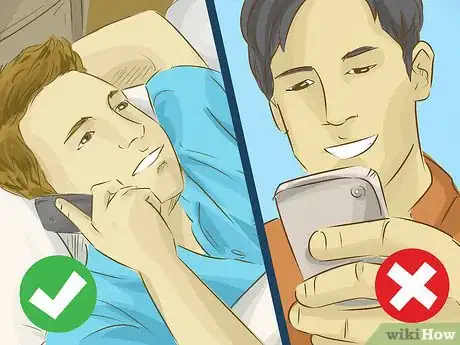



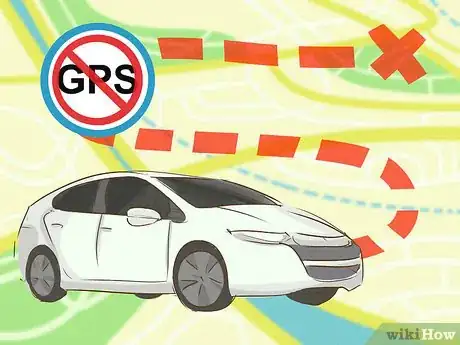
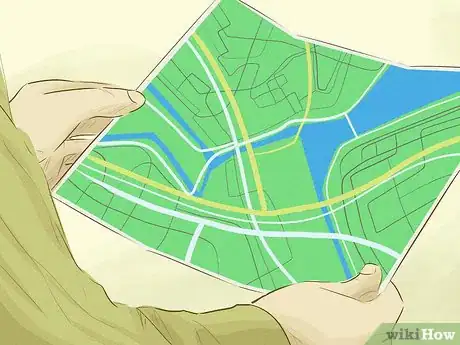

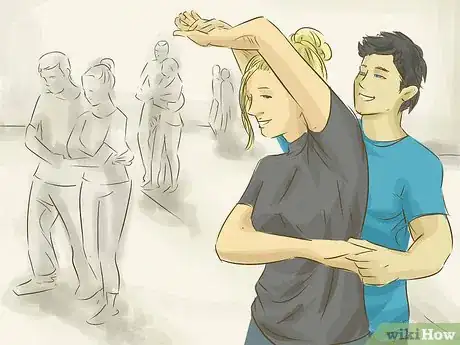




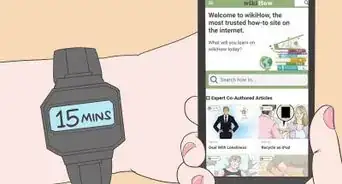





-Step-17.webp)




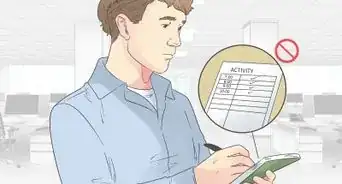
-Step-14.webp)












































